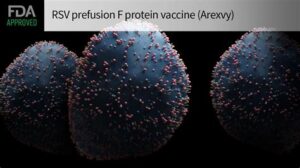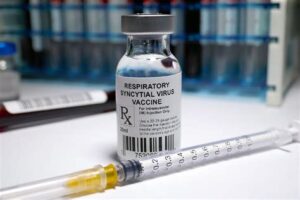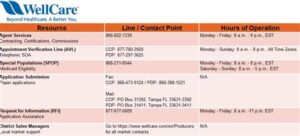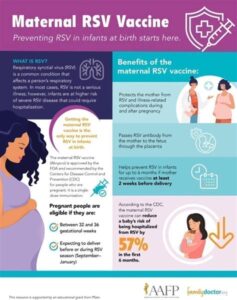Explore the essential information on RSV vaccines, including types, effectiveness, recommended providers, and guidance for infants to ensure health and safety.As respiratory syncytial virus (RSV) continues to pose a significant health risk, particularly for infants and vulnerable populations, understanding where to obtain RSV vaccines has never been more crucial. This blog post will guide you through essential information about RSV vaccines, from their purpose to their effectiveness, as well as the various types available. We’ll also discuss recommended providers for these vaccines, ensuring that you have a reliable source for your vaccination needs. Whether you’re a parent seeking protection for your child or an adult looking to safeguard your health, navigating the landscape of RSV vaccines can be daunting. Join us as we break down everything you need to know about RSV vaccines and where to get them.
Understanding RSV Vaccines
Respiratory Syncytial Virus (RSV) is a common virus that can lead to serious respiratory illnesses, especially in infants and the elderly. RSV vaccines are vital in providing protection against this virus, reducing the incidence of severe respiratory infections. Understanding the significance of these vaccines can help caregivers make informed decisions for their loved ones.
There are several types of RSV vaccines currently in development, with some already approved for use. These vaccines can provide immunity to high-risk populations, significantly lowering hospitalization rates and severe illness associated with RSV. For instance, monoclonal antibodies have shown promise in preventing RSV infection in premature infants, enabling them to develop better immunity.
Getting vaccinated is especially important for those in close contact with babies and vulnerable populations. Healthcare providers recommend that families discuss their vaccine options with their pediatricians, who can guide them in understanding the potential benefits and any concerns that may arise regarding safety and efficacy. By being proactive about RSV vaccinations, families can better protect their most vulnerable members from the potentially severe consequences of RSV infection.
Recommended Providers for RSV Vaccines
When seeking RSV vaccines, it is important to choose a trusted and reputable provider. The administration of vaccines is a critical aspect of public health, especially for vulnerable populations such as infants and the elderly.
- Pediatricians: Most pediatricians are equipped to provide RSV vaccines to infants and young children. They are familiar with the vaccination schedule and can offer guidance on the importance of these vaccines.
- Hospitals: Many hospitals have outpatient clinics that specialize in immunizations, including RSV vaccines. It is advisable to check with local hospitals to see if they offer this vaccine.
- Pharmacies: Some retail pharmacies have begun offering a range of vaccines, including RSV vaccines. Check with local chains to find out what their vaccine offerings entail.
- Public Health Departments: Local or state health departments often provide immunizations at low or no cost. This is an excellent option for those who may be uninsured or underinsured.
Before getting vaccinated, it is advisable to consult with the healthcare provider regarding the availability of RSV vaccines and any specific requirements. Ensuring that you have the most accurate and updated information can help in making the best healthcare choices for you or your child.
Additionally, you can use online platforms to locate nearby providers that administer RSV vaccines. Websites such as the CDC’s vaccine finder or state health department resources can provide up-to-date information on where to get vaccinated.
In summary, when searching for RSV vaccines, ensure that you choose a trusted healthcare provider. This way, you can be more confident in receiving quality care and accu
RSV Vaccines for Infants
Respiratory Syncytial Virus (RSV) is a common respiratory virus that can be particularly dangerous for infants and young children. Therefore, understanding the importance of RSV vaccines for infants is crucial for parents and caregivers. Such vaccines are designed to protect vulnerable populations by preparing their immune systems to fight against the virus effectively.
Currently, the types of RSV vaccines available include monoclonal antibodies such as palivizumab, which is administered as an injection. This type of treatment is often recommended for high-risk infants under the age of two to help prevent severe RSV disease. The vaccination schedule typically involves several doses during the RSV season, thus providing considerable immunity when it is most needed.
When seeking vaccination providers for infants, it’s essential to consult with your pediatrician or healthcare provider. They can provide guidance on the best course of action and help schedule the vaccinations based on the infant’s age and health condition. Ensuring timely vaccination can significantly reduce the risk of severe complications from RSV.
Types of RSV Vaccines Available
Respiratory Syncytial Virus (RSV) is a significant cause of respiratory infections, particularly in infants and the elderly. To combat this virus, various types of RSV vaccines are being developed and tested. Understanding these different types of RSV vaccines is essential for making informed healthcare decisions.
Currently, there are two primary categories of RSV vaccines: live attenuated vaccines and subunit vaccines.
| Vaccine Type | Description |
|---|---|
| Live Attenuated Vaccines | These vaccines contain weakened forms of the virus, stimulating an immune response without causing the disease. |
| Subunit Vaccines | These vaccines include pieces of the virus (like proteins), and they help the body develop immunity without introducing the entire virus. |
Each of these vaccine types has its specific target group. For instance, live attenuated vaccines are often recommended for healthy children, whereas subunit vaccines may be more suitable for high-risk populations such as premature infants or those with underlying health conditions. As research progresses, the development of new RSV vaccines continues to evolve, promising enhanced protection against this common yet dangerous virus.
Effectiveness and Side Effects of RSV Vaccines
Respiratory Syncytial Virus (RSV) can cause severe respiratory infections, especially in infants and older adults. As a result, the development of RSV vaccines has been a significant advancement in public health. Understanding the effectiveness of these vaccines is crucial for parents and healthcare providers alike.
Current research indicates that the newly developed RSV vaccines exhibit a high level of effectiveness in preventing severe infection. Clinical trials have shown that these vaccines can reduce the risk of hospitalization and serious complications among high-risk groups. According to one study, the effectiveness rates can range between 70% to 90%, depending on the age group and underlying health conditions of the recipients.
While the benefits of RSV vaccines are significant, like any medical intervention, they may come with potential side effects. Common side effects reported include mild reactions such as soreness at the injection site, fatigue, and low-grade fever. In some cases, individuals may experience more serious but rare side effects, such as allergic reactions. It’s essential to consult with a healthca
Frequently Asked Questions
What is RSV and why is the vaccine important?
RSV, or Respiratory Syncytial Virus, is a common virus that can cause respiratory infections, particularly in infants and older adults. The vaccine is important as it can help prevent severe infections and hospitalizations.
Who should get the RSV vaccine?
The RSV vaccine is particularly recommended for infants, young children, and adults at high risk, including those with underlying health conditions like asthma or heart disease.
Where can I find RSV vaccines?
RSV vaccines can be obtained from healthcare providers, hospitals, clinics, and certain pharmacies. It’s best to consult your healthcare professional for specific locations.
Is the RSV vaccine covered by insurance?
Most insurance plans cover the RSV vaccine, especially for high-risk populations. It’s advisable to check with your insurance provider for specific coverage details.
How effective is the RSV vaccine?
The effectiveness of the RSV vaccine can vary, but clinical trials show it significantly reduces the severity of symptoms and the likelihood of hospitalization for those vaccinated.
Are there any side effects associated with the RSV vaccine?
Common side effects may include mild pain at the injection site, fever, or fatigue. Serious side effects are rare, but any unusual reactions should be reported to a healthcare professional.
When is the best time to get the RSV vaccine?
The best time to get the RSV vaccine is before the RSV season, which typically peaks in fall and winter. Consulting with a healthcare professional can help determine the ideal timing for vaccination.





